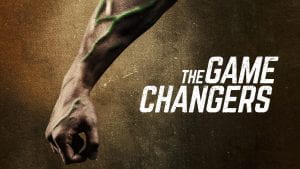Hello everyone! I’m back again! In this entry, I will be talking less about my experiences as a vegan and I shall start delving into how the message of sustainability and veganism is being communicated – in this case, in documentaries.
a cozy documentary night with a side of pupating caterpillars for our env1101 project! (taken by me)
Over my hectic recess week, I decided to do a little small scale primary research. I caught up with two of my closest friends from JC and we had a little documentary marathon overnight. We watched the documentaries “What the Health” and “The Game Changers” (both available on Netflix). I wanted to see the reactions and perspectives of my friends (who are both non-vegan and watching them for the first time) after watching the documentaries.
Let me give a little background about the documentaries:

(source_ what the health) (source_the game changers)
What The Health: a 2017 documentary which critiques the health impact of meat, fish, eggs and dairy products consumption, and questions the practices of leading health and pharmaceutical organizations. Its primary purpose is to advocate for a plant-based diet.(URL)
The Game Changers: a 2018 documentary about the benefits of plant-based eating for athletes. It covers multiple success stories of plant-based athletes, references scientific studies, and touches on other arguments for plant-based diets that extend to non-athletes.(URL)
We had a little chat after the two documentaries and here are some snippets of our chat.
Thoughts on What the Health:
“Does it mean I have been smoking my whole life?” was one of the reactions to “eating an egg a day is as bad as smoking 5 cigarettes a day” for your life expectancy. They admitted that some parts of the documentary did present very thought-invoking perspectives (that certain health organisations are being lobbied by the milk, dairy and meat industries to skew facts and present a certain narrative that benefits those industries.) However, scientifically-inaccurate and questionable messages like “eating eggs are as bad as smoking” makes them question the legitimacy of the other statements in the documentary.
Thoughts on The Game Changers:
Both agreed that the “plant-based” agenda was a lot less obvious and the way they presented their findings were in a more neutral and understandable manner. Debunking myths of the lack of protein in a plant-based diet as well as perceived lack of masculinity was something that my friends found interesting. They felt genuinely inspired to try out and see the effects of a plant-based diet (especially for my friend who was a national athlete) despite still having doubts on issues of price, practicality.
Although the reactions of my peers may not be very representative of everyone, (I can’t possibly make the entire BES batch spend 4 hours on documentaries just to do my primary research right!) it gave me loads of valuable insight that I will be exploring in the next few blogs.
Two documentaries with the same agenda, with two different ways of communicating and presenting their ideas, and eliciting different types of responses. It made me ponder: does this extend to how we communicate sustainability agendas like veganism to our peers? Or even how sustainability activists communicate their messages. As a fellow BES student, how would you present your stance on sustainability in a social setting and how would you present your message to inspire and enact change.
